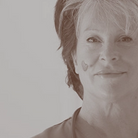Does wanting cosmetic treatments like anti-wrinkle injections, lip fillers or a non-surgical facelift simply make us vain or self-centred? Many of you will be happy to discover that the answer is no, according to studies. Aesthetic practitioner Piroska Cavell, owner of Clinic Sese, explains all and offers insight into why they might actually boost our wellbeing.
The Psychological Benefits of Aesthetic Treatments
Surprisingly, there is still a percentage of the population whose perception of aesthetic treatments is that they are either shallow, vain or just unnecessary, and this view is often perpetuated by a substantial amount of conflicting negative commentary in the media and social media. Meanwhile, at the same time, there’s a fascination with emulating celebrity, trying to work out who has had ‘anything done,’ and if so, what - triggering a trend. A great example of this being the obsession with the Kardashians’ lips and rears. There is also a type of aesthetic shaming on individuals in the public eye who appear to have undergone treatments, promoting the response of flat denial, as with J.Lo. Obviously, only she knows for sure if she has undergone any aesthetic treatments, but we would all love to know the brand of that olive oil-for sure!
Social media and self-comparison
Social media itself is often held up as being responsible for the rise in this desire to change facial features, reverse the signs of ageing and the aspiration/celebrity culture. These days, more and more patients show me pictures of themselves on their own social media, pointing out what they perceive as the ‘problem’. Whilst there is without doubt an element of self-comparison with social media and general media images, studies have produced evidence that suggests it is only those already with a tendency towards perfectionism who are likely to become obsessed with their appearance due to social media and media images (McComb & Mills, 2021).
Men are more likely to be concerned with their body shape and muscle bulk, and teenage girls have the potential to become susceptible to the ‘thin ideal’. However, aesthetic practitioners shouldn’t be treating teenage girls. I don’t treat anyone under the age of 21. For some, this aspirational comparison behaviour can become extreme, and in rare cases this can lead to the more serious condition of body dysmorphia and trigger eating disorders (Halliwell, 2013). A full consultation should be the prerequisite to any treatment, helping to identify those with a deeper issue and enable the practitioner to refer them to the appropriate help.
Patients focused on ‘getting fixed’ can be vulnerable to exploitation by unscrupulous practitioners, resulting in unnecessary treatments. This is one of several reasons why I would advise patients to seek out a medical practitioner. Whether it is a nurse, a midwife like me, or a doctor, we are bound by a duty of care and a code of conduct. If a medical practitioner were to behave other than professional and clinical without evidence for their actions, they would risk being investigated and potentially struck off.
Focusing on our flaws
It’s a natural response to be automatically drawn to look at what you perceive to be the flaw on your face when you look in the mirror, and it can feel like the most prominent feature to you. However, others will not see what you do, and they will look at your whole face. This is something I saw repeatedly in my photographic studio. When people looked at pictures of themselves, they always looked for the ‘flaw’ first. I see this daily now when I meet patients and ask them to look in the mirror and tell me what they see.
We all know how a bad hair day can affect your mood. Or how not being happy with your weight or a certain outfit can alter your confidence levels and self-esteem. Ever stood in front of the mirror and thought ‘I can’t go out with hair like this, I look awful!’? Or ‘this outfit looks rubbish; it makes me look fat/old/unfashionable’. If your reflection does not meet your expectation it can trigger a very negative narrative from your inner voice.
For many, this can just make us feel a little self-conscious. This is referred to as your appearance orientation, which reflects your cognitive behavioural investment in your appearance. Negative feelings about your body and appearance are considered one of the most important global measures of stress related to the body (Vossbeck-Elsebuschet al, 2014). Most of us can counter these feelings with perspective and rationale. Psychologists have identified this response as ‘body appreciation’ (Halliwell, 2013), where you are aware of the bits of your appearance you are not so keen on, but you can also identify the bits you do like. For example, maybe you don’t like those two lines between your eyebrows (your 11s) but you love your lips. For a while using a bright lipstick to draw attention away from your lines will work for you, but over time you may well decide that the lipstick is no longer cutting it.
The added benefits of cosmetic treatments
Despite the sometimes-negative publicity and misinformation surrounding aesthetic treatments such as anti-wrinkle injections, dermal fillers, Profhilo, PDO threads, and mesotherapy, they remain increasingly popular, and the reasons for men and women seeking these treatments range from a wide variety of reasons. For some it is as simple as maintenance. They are comfortable with themselves but not ready to live with the signs of ageing that may start to creep in. They maintain regular treatments as an essential part of their self-care routine. In terms of weight loss, they may just want to lose a few pounds to maintain their figure or use intralipo therapy such as Deso Face and Deso Body to dissolve a few stubborn lumps and bumps to improve their silhouette and the line of their clothes, freeing themselves from their Spanx! But, for others there is a deeper reason.
I treated a patient in her mid 50s who had survived a mild stroke. Whilst happy to be alive, this vibrant, intelligent, attractive woman was devastated. She was recently divorced, funny, intelligent, sociable and outgoing - until the stroke left her with a noticeable droop on one side of her mouth. This visible sign of what had happened to her impacted hugely on her self-perception. She was not ready for this event. She had lost most of her confidence and was no longer socialising. We discussed what could be done, and a combination of injectable treatments - Botox and Dermal Filler - resulted in the correction of her mouth. A relatively small treatment for me to perform but a game changer for her. She messaged me a few days later, thanking me ‘for giving her back her confidence’. In her words, the treatment ‘had totally transformed her confidence and self-esteem, and given her back her life’.
I have also treated patients who simply found the signs of ageing overwhelming. They invested so much in keeping their body in great shape and maintaining their health but the external signs of ageing on their skin impacted negatively on their mood and ability to socialise. I have seen the same effect in people who may have been bullied when they were younger about a feature such as the shape of their nose. Also, in patients who have begun to feel self-conscious due to constantly being asked if they are unhappy or tired because of lines on their face. When the level of self-consciousness affects your ability to maintain normal social interaction, it is what psychologists term ‘impaired psychosocial function’.
The connection with self-perception and psychosocial function has been a serious topic of study since the 1950s, with several studies developing various social science theories used to study the way humans dress and behave (Rudd 1991). Whilst today the drivers may be primarily focused on self-satisfaction, the desire for self-improvement is not new. Human beings around the world have always used body adornment and modification to improve their looks, and enhance and increase their attractiveness and confidence (Roach-Higgins & Eischer 1992).
So, the good news is that it’s a fact - you are not vain, or shallow if you have aesthetic treatments and they make you feel happier with yourself and boost your self-esteem. You are doing what our ancestors around the world have been doing forever. You only have to watch the show 10 Years Younger on Channel 5 to see what an impact these treatments can have on some people. And whilst it should never be claimed that aesthetic treatments themselves are life changing, their effect on your self-confidence can be.
References:
- Halliwell, E, The impact of thin idealised media images on body satisfaction: Does body appreciation protect women from negative effects? Body Image (2013) 10 (4):509-14 Accessed 30/3/21 www.pubmed.ncbi.nlm.nih.gov
- McComb S & Mills, J (2021), “Young women’s body image following upwards comparison to Instagram models: The role of physical appearance perfectionism and cognitive emotion regulation” Body Image vol 38 pages 49-62 Science Direct, Accessed 01/04/2021www.sciencedirect.com
- Roach-Higgins ME, Eischer JB: Dress and identity, Clothing and Textiles Research Journal.1992,10 (4):18 Accessedwww.springeropen.com 01/04/2021
- Rudd NA: Textiles and clothing in higher education: Strengthening linkages and conceptual identity. Critical linkages in textiles and clothing subject matter. Theory method and practice. Edited by: Kaiser SB, Damhorst ML. (1991). International Textile and Apparel Association, Monument, CO 24-32 Accessed 30/3/21
- (Vossbeck-Elsebusch et al, German Version of the Multidimensional Body-Self Relations Questionnaire-Appearance Scales (MBSRQAS): confirmatory factor analysis and validation. Body Image (2014) 11 (3):191-200 Accessed 30/3/21 www.fronteirsin.org.
If you are considering booking an aesthetic treatment, make sure it's with a medically qualified aesthetic practitioner who will be able to thoroughly assess you and find the right tweakment for you. Search now on Glowday, where we have hundreds of doctors, nurses, dentists and prescribing pharmacists to choose from - keeping you in safe hands!

